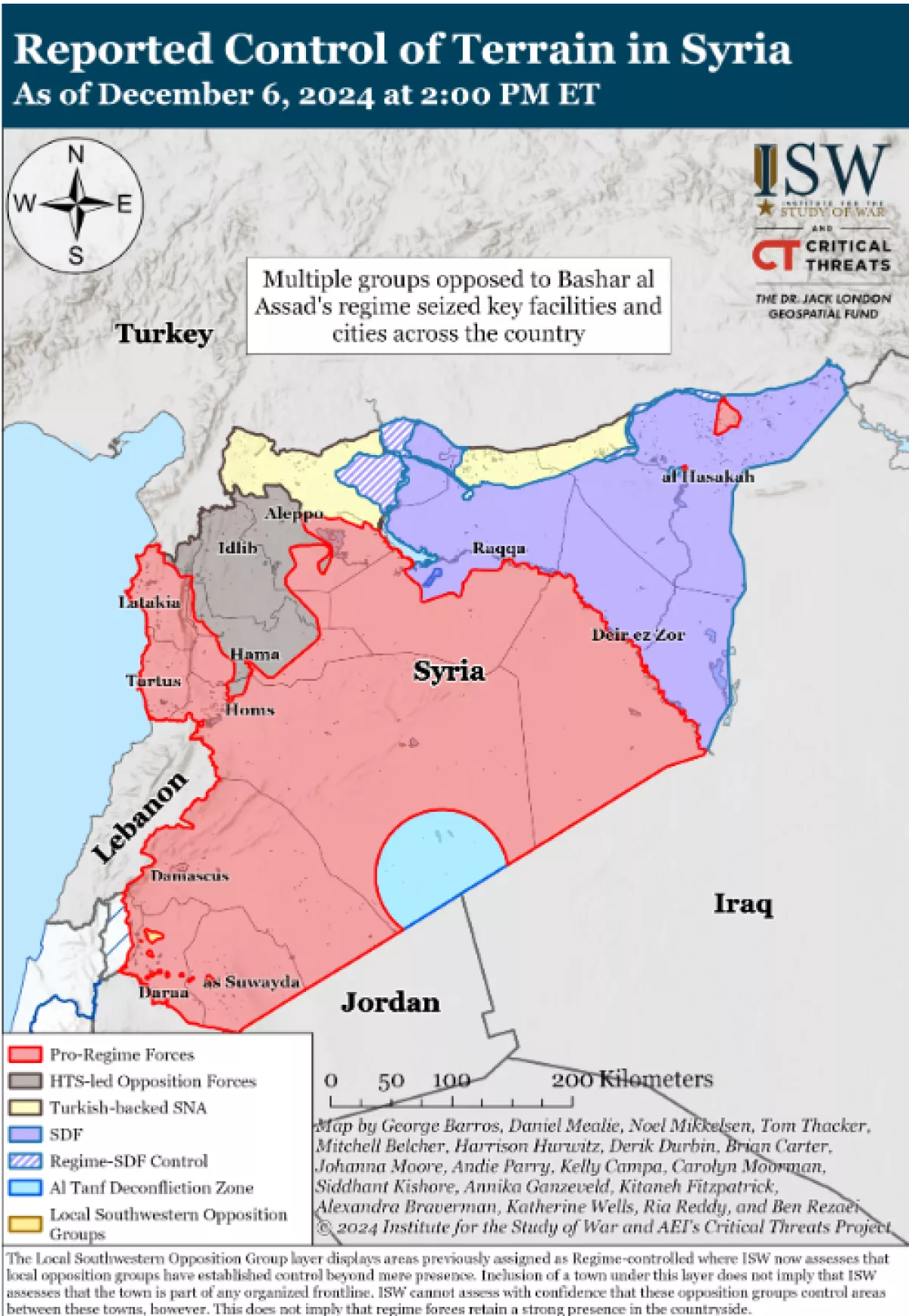ISW: Assad’s regime on brink as forces crumble, allies hesitate PHOTO
The regime of Bashar al-Assad is grappling with an existential threat as its forces face widespread collapse and struggle to maintain external support to counter opposition advances.
In the last 24 hours, groups opposed to Assad, including local factions in southwestern Syria, the US-backed Syrian Democratic Forces (SDF), and the HTS-led Fateh Mubin Operations Room, have rapidly seized territory amid the regime's collapse, Caliber.Az reports, citing ISW.
Sources suggest that Assad's backers, particularly Russia, are reluctant to increase military assistance to the Syrian Arab Army. A source reportedly close to the Kremlin indicated that unless Assad's forces can establish a defensive line—a feat that is becoming increasingly unlikely as more regime units collapse—Russia will not intervene to “save” Assad.
Meanwhile, the so-called Axis of Resistance, comprising Iran, Hezbollah, and their allies, is unlikely to halt the opposition's advances unless significant ground forces are deployed. Reports indicate Iran's plans to send missiles and drones into Syria, while both Iran and Hezbollah will send military advisers. Hezbollah has already deployed some of these advisers to Homs in a bid to shore up Assad's military capabilities.
However, the number of personnel and resources is insufficient to reverse the nationwide collapse of Syrian forces. Additionally, Hezbollah’s ongoing commitments in Lebanon—particularly after suffering heavy losses in recent Israeli campaigns—further constrain its ability to commit the numbers required for a meaningful ground offensive.
The security situation prompted a trilateral summit in Baghdad on December 6, involving the foreign ministers of Iran, Iraq, and Syria. This meeting aimed to coordinate a collective response to Syria’s deepening security crisis. Iranian Foreign Affairs Minister Abbas Araghchi stated that Iran would “consider” requests for Iranian ground forces should they arise, though no such formal request has yet been made. Even if Iranian troops were deployed, their ability to stabilize the conflict is questionable given the rapid advances by opposition forces and Assad's increasingly fragile hold on power.
Türkiye remains opposed to settling the crisis without Assad’s removal. HTS leader Abu Mohammed al-Jolani has reiterated that the group seeks to replace the Assad regime with a government formed by a “council chosen by the people.” Turkish President Recep Tayyip Erdoğan has been vocal about the opposition’s ultimate goal of taking Damascus, and acknowledged attempts to broker peace agreements with Assad in the past. However, these efforts have repeatedly failed due to Assad’s unwillingness to compromise.
Türkiye has also previously explored the possibility of agreements that could pave the way for the voluntary return of Syrian refugees to their home country, but such discussions have stalled. As the conflict escalates, the prospects for a negotiated solution or effective international intervention appear slim.
With Assad’s military under increasing strain and regional powers hesitant to commit significant resources, the coming months will likely see intensified opposition advances across Syria, potentially heralding further instability and regime fragmentation.

By Aghakazim Guliyev








